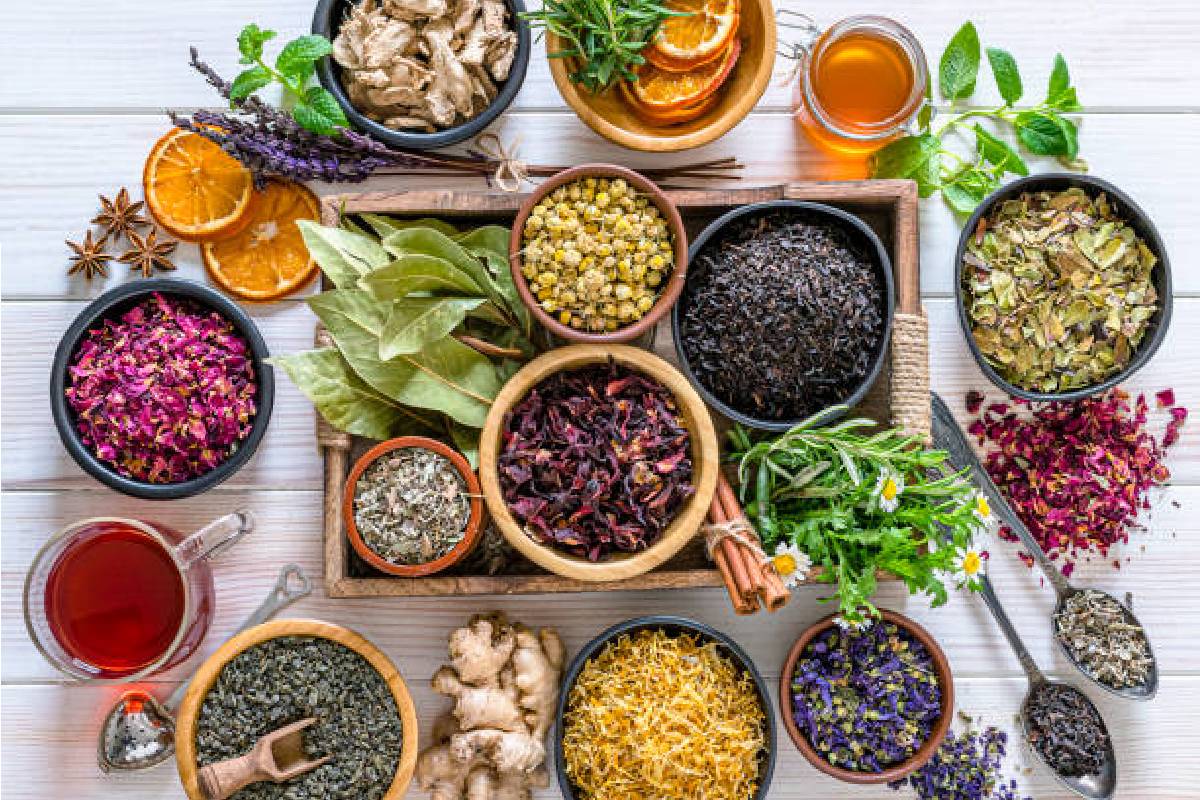Throughout history, the usage of herbs and spices has been crucial. Long before they were used in cooking, many were praised for their therapeutic qualities. Today’s science has demonstrated that many of them do, in fact, provide tremendous health advantages.
The healthiest herbs and spices in the world are listed below.
1. Cinnamon Has a Strong Anti-Diabetic Effect and Lowers Blood Sugar Levels
Numerous health advantages of cinnamon include its ability to significantly reduce blood sugar levels.
Cinnamon has been demonstrated to lower blood triglycerides and cholesterol levels, as well as to fight inflammation. But it’s cinnamon’s impact on blood sugar levels that truly shines.
Cinnamon can reduce blood sugar through a number of different methods, including by delaying the digestion of carbohydrates and enhancing insulin sensitivity.
2. Sage Can Boost Memory and Brain Function
There is encouraging proof that sage extract can enhance memory and brain function, particularly in people with Alzheimer’s disease.
It was utilised to help avoid the plague and enjoyed a good reputation for its healing powers during the middle ages. Acetylcholine is a chemical messenger in the brain that is known to be affected by Alzheimer’s disease. Acetylcholine acetyltransferase is prevented by sage.
3. IBS Pain Relief and Possible Nausea Reduction with Peppermint
The use of peppermint in aromatherapy and traditional medicine dates back many years.
Like many herbs, the substances that have a positive impact on health are found in the oily component.
Peppermint oil appears to act by relaxing the smooth muscles in the colon, which lessens pain experienced during bowel movements. Numerous studies have demonstrated that peppermint oil helps assist pain management in irritable bowel syndrome. Additionally, since stomach bloating is a typical digestive complaint, it aids in reducing it.
IBS sufferers who use peppermint oil receive pain alleviation. When used in aromatherapy, it also has effective anti-nausea properties.
4. Curcumin, a substance with potent anti-inflammatory properties, is a component of turmeric.
Curcumin is a tremendously potent antioxidant that supports the body’s natural antioxidant enzymes in fighting oxidative damage.
This is significant since it is thought that oxidative damage is one of the primary mechanisms underlying ageing and a number of diseases.
Additionally, curcumin has potent anti-inflammatory properties that are comparable to those of some anti-inflammatory medications.
Given the significant role that chronic, low-level inflammation plays in practically every chronic Western illness, the discovery that curcumin has a number of positive health effects is not surprising.
5. Holy Basil Boosts Immunity and Fights Infections
In addition to lowering blood sugar levels before and after meals, holy basil herbs has been connected to alleviating anxiety and anxiety-related sadness. Research has also shown that holy basil can prevent the growth of a variety of bacteria, yeasts, and moulds.
6.Cayenne pepper
Its main component, capsaicin, has been demonstrated in numerous tests to decrease appetite and boost fat burning.
It is a typical component of several commercial supplements for weight loss.
According to one study, persons who didn’t typically eat pepper lowered their hunger and boosted fat burning when they added 1 gramme of red pepper to their meals.
7. Ginger Has Anti-Inflammatory Properties and Can Treat Nausea
Additionally, ginger seems to have potent anti-inflammatory effects that can aid with pain management .
One study in people at risk for colon cancer discovered that aspirin and 2 grammes of ginger extract daily both reduced markers for colon inflammation .
Another study discovered that a concoction of ginger, cinnamon, mastic, and sesame oil reduced the pain and stiffness osteoarthritis sufferers felt. It was just as effective as taking aspirin or ibuprofen for the condition.
8. Preventing allergies and nasal congestion with rosemary
Rosmarinic acid is the name of the rosemary’s active component.
It has been demonstrated that this chemical suppresses allergic reactions and nasal congestion. With lessened congestion, the number of immune cells in nasal mucus also dropped.
9. Garlic Can Improve Heart Health and Fight Illness
We now understand that the majority of these negative health effects are brought on by the chemical allicin, which also gives garlic its distinctive odour.
For patients with excessive cholesterol, garlic supplementation seems to reduce total and/or LDL cholesterol by about 10-15%. Garlic supplementation is widely known for treating illness, especially the common cold.
Garlic supplementation significantly lowers blood pressure in persons with high blood pressure, according to human research.
Also read – https://herbalrelm.com/2022/11/04/vegetarian-and-vegan-diet/
